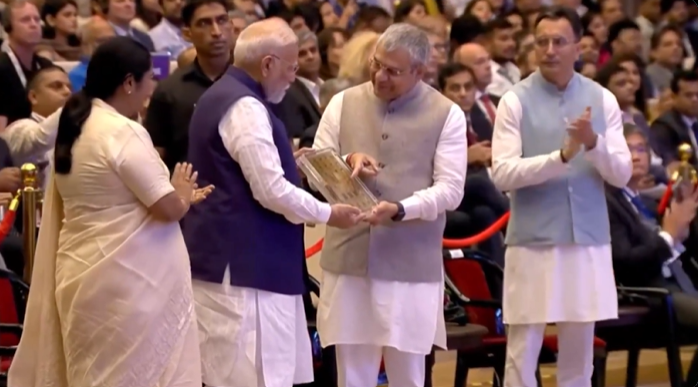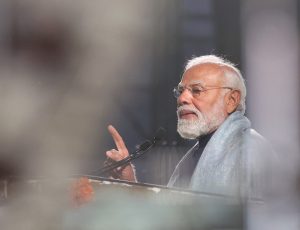Vikram Processor Marks India’s Entry into Indigenous 32-Bit Chip Design

Photo Credit: @AshwiniVaishnaw
India achieved a significant breakthrough in its semiconductor mission with the unveiling of its first indigenously developed 32-bit microprocessor, named Vikram, at the Semicon India 2025 conference. The processor was formally presented by Union Electronics and IT Minister Ashwini Vaishnaw to Prime Minister Narendra Modi, along with test chips from four sanctioned semiconductor initiatives.
Developed by ISRO’s Semiconductor Laboratory, the Vikram processor is engineered to withstand the extreme conditions of space launch vehicles, reducing India’s reliance on imported components. Vaishnaw emphasized that this achievement reflects the rapid growth of India’s semiconductor ecosystem, supported by both infrastructure expansion and strong policy direction.
The minister announced that construction of five semiconductor units is underway, with one pilot line already completed and two more preparing to begin production soon. Designs for five additional units are progressing, with global ecosystem partners actively engaged. He credited Prime Minister Modi’s vision for driving this progress, noting that in just three and a half years, India has earned worldwide confidence in its semiconductor ambitions.
Vaishnaw also highlighted India’s position as a beacon of stability in an uncertain global environment. He urged international investors to take advantage of India’s policy stability, rising domestic demand, and the fast-growing electronics sector, which has seen production rise six times and exports grow eightfold in the last ten years.
The unveiling of Vikram complements India’s strong presence in chip design. According to a Bastion Research report, nearly 20% of the world’s chip design engineers are based in India. Leading global companies such as Qualcomm, Intel, Nvidia, Broadcom, and MediaTek operate major R&D centres in Bengaluru, Hyderabad, and Noida, reinforcing India’s role in the global chip design chain.
The government’s Semicon India Programme, launched in 2021 with incentives worth ₹76,000 crore, continues to attract investments and strengthen domestic capabilities. The debut of Vikram and the expansion of semiconductor units underscore New Delhi’s strategy to transform India into a hub for semiconductor design and manufacturing, ensuring both economic growth and strategic self-reliance.
Source: The Economic Times




